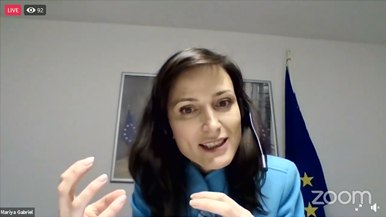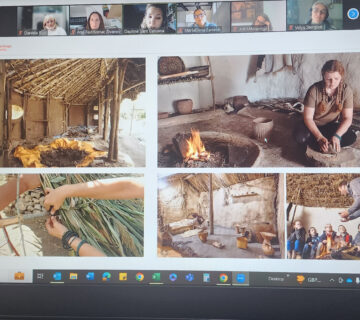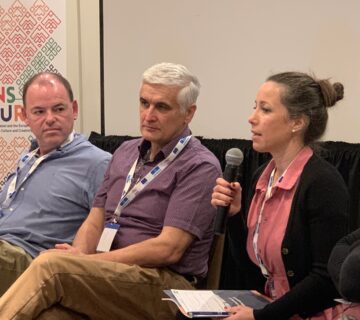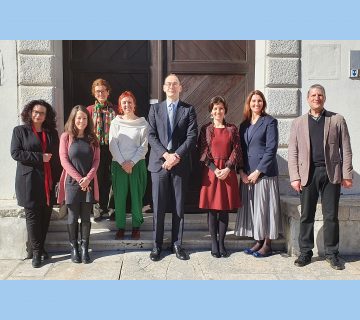Covid-19 has forced us to spend more time at our desks, but has allowed us to attend online meetings that we may not have travelled to in person.
Regarding our representation at international events, the current situation offers challenges but also opportunities. Events that were at first postponed have now been taking place online, and in many cases, they were opened to wider audiences. This also allowed our management and coordinators to represent IE at more such events.
While not all virtual events are as intense as in-person meetings, their number is still increasing. If you follow us on social media, you can find announcements for events that are open to everyone. Why not take the opportunity to get involved and exchange views with other members? Some events are recorded and the recordings are uploaded which allows you to watch them later.
During the past few months, we have attended and presented at the following meetings and conferences to maintain IE’s profile.
The third meeting of the Commission’s Expert Group on Cultural Heritage took place, in which Covid-19 and its impact on the cultural heritage sector was discussed.
We presented IE’s tourism initiative to other stakeholder organisations at the European Cultural Tourism Network (ECTN) conference.
We introduced IE’s cooperation with UNESCO at an online seminar of Parks Norway in order to link more World Heritage sites with our tourism initiative.
We attended UNESCO’s launch of the ESD for 2030 Roadmap (Education for Sustainable Development) in the Europe and North America region and found that the IE training programme contributes to three out of five priority action areas of the roadmap (Transforming learning environments, Building capacities of educators, Accelerating local level actions).
We attended the high-level webinar, A Cultural Deal for Europe, led by Europa Nostra in cooperation with Culture Action Europe and the European Cultural Foundation. It was introduced by a powerful message from the President of the European Parliament, David Sassoli, and the joint statement ‘A Cultural Deal for Europe: A central place for culture in the EU’s postpandemic future’ was issued. This joint statement puts forward an overarching Cultural Deal for Europe to realise the potential of culture and heritage for Europe’s recovery and long-term future, which was
welcomed by Commissioner Mariya Gabriel.
Finding inspiration in food and gastronomic heritage during lockdown was not hard and we attended these events: FoodTreX Research Summit, Arrival 360: The virtual in-destination event, and Food and Cultural Heritage: an EU Policy Perspective.
Of course, we also attended several online work meetings. We joined six meetings to prepare for the UNESCO pilot course on interpretive planning (based upon the IE CIP course) which will take place next year for people around World Heritage sites, and we also joined six meetings with the working group on traditional knowledge within the Climate Heritage Network to prepare for the Climate Heritage week, which took place 16-22 November.
Furthermore, we have been busy thinking about our next steps as IE enters a new strategic period in 2021– more about that coming up – as well as preparing for the launch of a new-look website coming soon. Our coordinators will have met online on 12 December so as we write we are looking forward to seeing what activities especially our managing coordinators have come up with and hearing everyone’s reports onhow they are doing in their various countries and subject areas.
Available online: https://www.interpret-europe.net/fileadmin/Documents/publications/Newsletters/IE_newsletter_2020_4_winter.pdf




